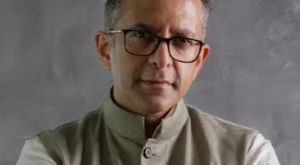Any talk of retirement, and we automatically think of being 60yrs & above. What if we could prepone our retirement by at least a decade – 50yrs or even earlier… Seems difficult or impossible, but it surely can be, if done with proper planning and execution.
Planning early retirement requires taking a long-term view of your finances and making clear and planning early to ensure financial stability. It involves identifying your financial goals, assessing current financial position, and creating a comprehensive plan that covers savings, investments, and expenses. In this article, we will look at some essential steps you can take to plan for an early retirement and ensure a financially secure future.
First and foremost: Corpus Calculation
Calculating the post-retirement corpus is a crucial aspect as it will determine how much money you will need to save and invest toward retirement, to be able to attain financial freedom and have a desirable lifestyle thereafter. While planning, it is also important to ensure that the saved amount does not deplete. Instead, it must grow over the years, ideally at a rate that beats inflation.
For example: If you are 25-year-old considering retiring at the age of 40. Your monthly expenses amount to Rs 40,000 in 2023. Assuming an inflation of 6% per annum, when you will turn 40 in 15 years, your monthly expenses will approximately be Rs 95,862 in the year 2038. Moreover, inflation will continue to impact after you retire. According to this, your retirement corpus need to reflect all of this.
| Current monthly expenses at the age of 25 | Rs 40,000 |
| Assumed inflation | 6% |
| Required monthly corpus at the age of 40 | Rs 95,862 |
| Required yearly corpus at the age of 40 | Rs 95,862 x 12 = Rs 11,50,348 |
If you require Rs 11.5 Lakh as yearly expenses at the age of 40, this expense figure is likely to get inflated till one reach in 70s or 80s owing to inflation. Hence, the calculation for retirement corpus must include inflated expenses each year.
The FIRE Method
One popular method of saving money for early retirement is F.I.R.E (Financial Independence, Retire Early) method. The F.I.R.E method focuses on living a frugal lifestyle for maximum savings, clearing off debt early and generating active returns through aggressive investments. The core principles of FIRE method include reduce expenses, increase income, save aggressively, invest in assets that generate passive income, and monitor. With these principles, you can potentially retire by or before the age of 50.
Credit as a Growth Propeller
Credit can be beneficial if used wisely. You can use credit to fund your appreciating assets which will help build wealth in long run and thus make you more financially independent. Credit can also help to generate liquidity in case of an emergency rather than prematurely withdrawing funds are parked in long term savings plans which can lead to interest loss.
There are various options in loans such as home loan, auto loan, consumer durable loans or a personal loan to fulfill your needs and aspirations.
According to a survey published in media, personal loans in India have witnessed a 46% growth in originations (by value) from FY21-22 and 67% of borrowers have taken a personal loan at some point in their lives to meet fund requirements. Even Home Credit’s annual study – How India Borrows (HIB) 2022, shows borrowers’ preference for EMI Cards for shopping or taking credit, as consumers post-pandemic are preferring to make big purchase through easy EMIs.
Invest – Make your money work for you
There are different types of investment options available for individuals looking to build a retirement corpus. If you are looking at high growth with high-risk path, then stock market investment is one of the options you have. You can invest directly in stocks or via IPO or through Systematic Investment Plan (SIP) in mutual funds.
Real estate is another investment option that can generate passive income. Rental properties can provide a steady stream of income and increase in value over time.
The other set of investments are ones which give uniform returns in long-term with minimal risks include Employee Provident Fund (EPF) till we retire, Fixed Deposit schemes for long-term (5yrs & above) and, Bullion, government schemes such as Public Provident Fund (PPF), tax-free Post-office schemes, Government securities and National Pension Scheme.
It is important while planning investment, to go for a diversified portfolio and not put all eggs in one basket. This helps in hedging risk and maneuvering assets for best returns.
What to consider while hiring a financial advisor?
When hiring a financial adviser to plan your early retirement, it’s important to consider their qualifications and experience, fee structure, investment philosophy, and approach to risk management. A good financial adviser should be able to work with you to develop a personalized retirement plan that considers your unique goals, risk tolerance, and financial situation, and provide ongoing support & guidance to help you achieve your retirement objectives.
In today’s busy life and world, you might not get time for hobby or something you always wanted to pursue, but an early retirement at the right age will reward you with all the time you ever wanted. (Ritu Prasad, VP – Product Management, Home Credit India)
By: Ritu Prasad, VP – Product Management, Home Credit India
 Newspatrolling.com News cum Content Syndication Portal Online
Newspatrolling.com News cum Content Syndication Portal Online







